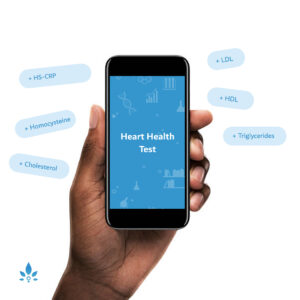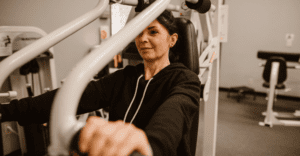Menopause Across Cultures


Cultural attitudes to menopause differ across the globe and in some cases across continents.
Stigma. Taboo. Misconceptions. Embarrassment. Barriers to care. A biological stage that will be experienced by half the world’s population is still largely hidden in secrecy and euphemism, ‘the change’.
51% of the world’s population will go through menopause and each woman’s experience of how menopause affects the body is deeply personal and unique to her. There is also a clear difference in how women in diverse cultures experience this natural stage in a woman’s life.
Culture influences the way women experience menopause
Studies show that our culture and its influence on the way we approach menopause has a powerful effect on how women experience perimenopausal symptoms. And whether menopause is seen as a positive or negative event.
Research by Yale School of Medicine reported in Reuters Health found that “In societies where age is more revered and the older woman is the wiser and better woman, menopausal symptoms are significantly less bothersome,”according to lead study author Dr Mary Jane Minkin, a professor in obstetrics, gynaecology and reproductive health.
And menopause specialist Dr Sandra Thompson explained to Reuters Health, “If menopause symptoms were due solely to hormonal changes then the menopausal experience would be more homogenous.”
In the West, the arrival of menopause is viewed with something akin to dread. Like death and taxes, it is treated with a bleak inevitability, something women cannot avoid and must bear in embarrassed silence. While in some cultures in the Middle East, Asia and for certain First Nations people the ‘transition’ is a time of renewal, transformation and improved social status. And in shamanic cultures menopause is a spiritual wakening. Women must go through menopause to access their wiser selves.
In societies where aging is viewed positively, women report fewer symptoms of menopause. Dr Mary Jane Minkin told Reuters Health, “Where older is not better, many women equate menopause with old age, and symptoms can be much more devastating.”
What’s in a name? Menopause in Western society
The word menopause literally means ‘monthly stop’, making a direct reference to the end of menstruation. It comes from the ancient Greek ‘men’ (month) and ‘pausis’ (cease).
In Western women the focus is on the collection of emotional and physical symptoms resulting from the decline in reproductive hormones and their link with aging.
The top 10 signs of perimenopause are hot flashes, irregular periods, loss of libido, hair loss, vaginal dryness, brain fog, mood swings, insomnia, night sweats and weight gain.
Menopause awareness is evolving in the West with vocal celebrity Gen X campaigners forcing a much-needed public debate, but there is still a way to go. For too long now the view of menopause in popular Western culture has been miserable. Menopausal women are presented as having passed their sell by date. As if a woman’s value is defined by her youth and fertility. Her usefulness and attractiveness linked with her ability to produce children.
This is even reflected in the way the healthcare profession has traditionally treated ‘women’s problems’, shrugging off a natural part of aging that affects over 50% of the population with limited investment in medical research and training.
And this has played out in workplaces. Little understanding of the physical and emotional impacts of perimenopause and menopause on the female workforce means there is inadequate support in the workplace. This means that women going through ‘the change’ are leaving the workforce early. They are overwhelmed by the burden of symptoms. Fears of hot flashes in meetings, flooding, impact of brain fog and sleeplessness, and hair loss force an early retirement. And yet until recently perimenopause hasn’t been a subject working women think they can broach.
But even across Western society there are differences in how women report their experience of menopause. For example, in Scandinavian countries Denmark, Norway and Sweden women surveyed didn’t find it as bad as expected. While in the United Kingdom and North America women report finding the experience much more difficult than predicted.
Menopause in Middle East
Knowledge and experience of menopause differs by ethnic and socioeconomic group across the Middle East. The word ‘menopause’ in Arabic translates to ‘age of despair’. The expression is thought to be linked with the end of childbearing years, rather than feelings of hopelessness around aging and the experience of menopause.
A 2021 advertising campaign in Saudi Arabia by a sanitary products brand aimed to change the perceptions of menopause in the Middle East because 81% of Saudi women surveyed believed the word for menopause should be changed to something more positive such as, “renewal, reflection, wisdom or creativity”.
Menopause in Eastern culture
In general women in Asian cultures report fewer hot flashes or night sweats, but more mood changes, insomnia, and muscle and joint pains.
The post-reproductive years are widely viewed as a positive transition into a stage of life crucial to society: older, experienced, and wise women with energy to spare.
Menopause in Japan
In Japan ‘konenki’ means renewal of life and regeneration. Women in Japan generally report fewer perimenopausal and menopausal symptoms.
While there may be diet and lifestyle considerations – the Japanese diet is high in soy, which contains phytoestrogens isoflavones – there’s no doubt the more positive cultural attitude to menopause in Japanese society also plays a role.
Menopause in India
Some communities in India embrace menopause as a time of liberation. The women of Rajasthan report experiencing typical perimenopausal symptoms, but view menopause as a natural stage of life that comes with benefits and frees them from societal constraints.
Menopause and First Nations women
The limited research on attitudes to menopause among Mayan and Aboriginal women reports that the communities embrace the freedom and gain in status brought by the menopausal transition.
More detailed research is needed on reporting of symptoms, although exploratory interviews with Mayan women reported typical perimenopausal symptoms were accepted with “equanimity; and rejoicing at the cessation of their periods”.
Menopause is a neutral or positive experience for Native American Indians, who are celebrated as ‘women of wisdom’ in their communities.
Positive menopause support with Nabta Health
If you are going through menopause or if you think you might be experiencing signs of perimenopause symptoms speak with your healthcare team about options for managing your symptoms. Nabta Health offers a wealth of resources, access to clinical advice, at-home testing, and wellness kits to support you during your perimenopause and menopause journey.













































